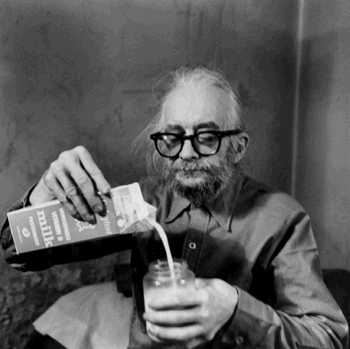“If We Must Die” (1922) - Claude McKay
“If we must die, let it not be like hogs
Hunted and penned in an inglorious spot,
While round us bark the mad and hungry dogs,
Making their mock at our accursed lot.
If we must die, O let us nobly die,
So that our precious blood may not be shed
In vain; then even the monsters we defy
Shall be constrained to honor us though dead!
O kinsmen! We must meet the common foe!
Though far outnumbered let us show us brave,
And for their thousand blows deal one deathblow!
What though before us lies the open grave?
Like men we'll face the murderous, cowardly pack,
Pressed to the wall, dying, but fighting back!”
This poem reminds me very much of Beowulf, and yes makes me want to crush a Coke can against my head and scream very loudly. This of course evokes the imagery of Beowulf fighting his last distinguished battle to the death at a ripe old age. Written shortly after WWI, the poem most likely summarizes the immensity and scope of such a war, and the sharp division, and contrastingly the brotherhood that inevitably occurred as well. One thing that is usually said of poetry is that it attempts to ward off apathy, indifference, and complacency. At the very least I can say that “If We Must Die” achieves this. I realize that I am writing a purely emotional response, but everything about this poem quickens the blood, and allows adrenaline to flow easily. Thematically it recalls the age old need of men to make legacies. Similar to another poem I analyzed in a previous blog post, “Ulysses,” “If We Must Die” contains the same imperialistic, testosterone-filled musings. Likewise, Heart of Darkness also possesses the same themes against mortal flaws. Ultimately this piece is just another in a vast collection of pieces based on the popular views of the time. How starkly it differentiates from modern sentiments; passionate then, while we are now passionless.
As mentioned above this poem conjures images of limitless unity and admirable temerity. Only through the perfection of rhyme, rhythm, and the use of inclusive pronouns does McKay successfully accomplish this. To establish such smooth and natural rhythm, McKay adapts the sonnet to fit his needs. McKay uses the usual a-b-a-b, c-d-c-d, e-f-e-f, g-g rhyming pattern of the sonnet, but deviates occasionally from iambic pentameter. As a line contains more than ten syllables, McKay places emphasis on an important phrase to incite the reader, such as with the final line of the poem. Also “making their mock at our accursed lot” contains rhyme in the same line, as if to provoke anger in the reader, as the tone drips with disdain. More importantly than all these factors McKay utilizes inclusive pronouns to unify the reader with the content of the text, and make the work more emotionally appealing in general. As an amateur writer I think that I tend to shy away from inclusive pronouns, as I fear misuse and being inadvertently cliché. However, I feel that McKay provides a perfect example of how inclusive pronouns ought to be used in writing.

No comments:
Post a Comment